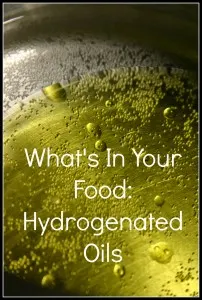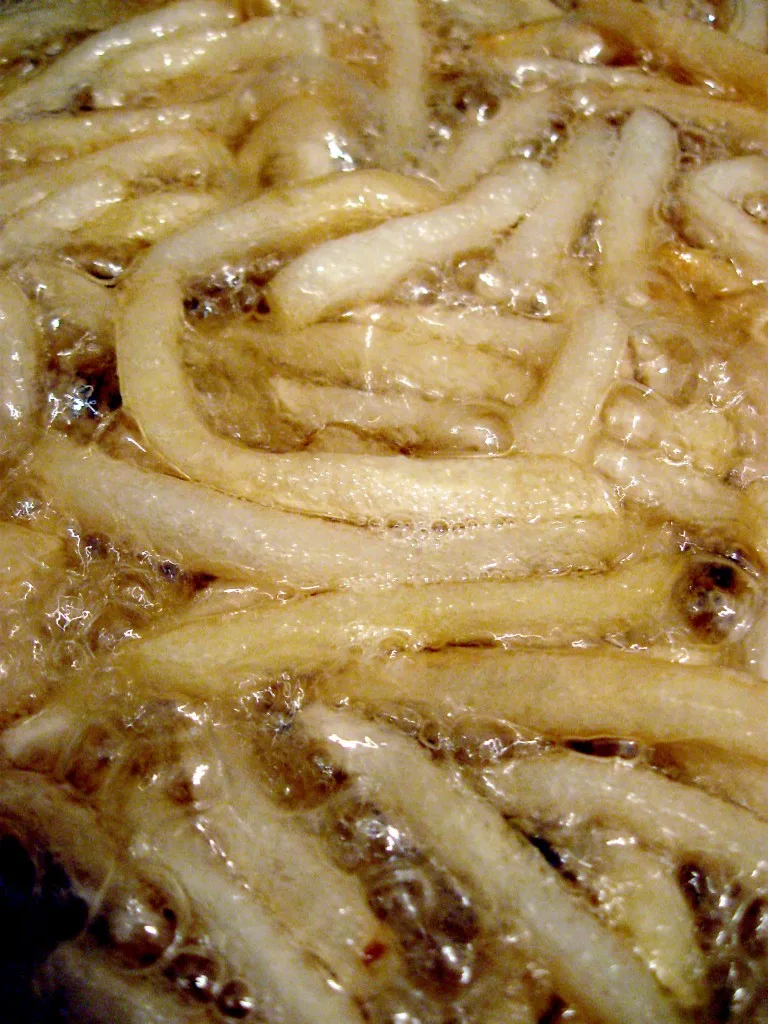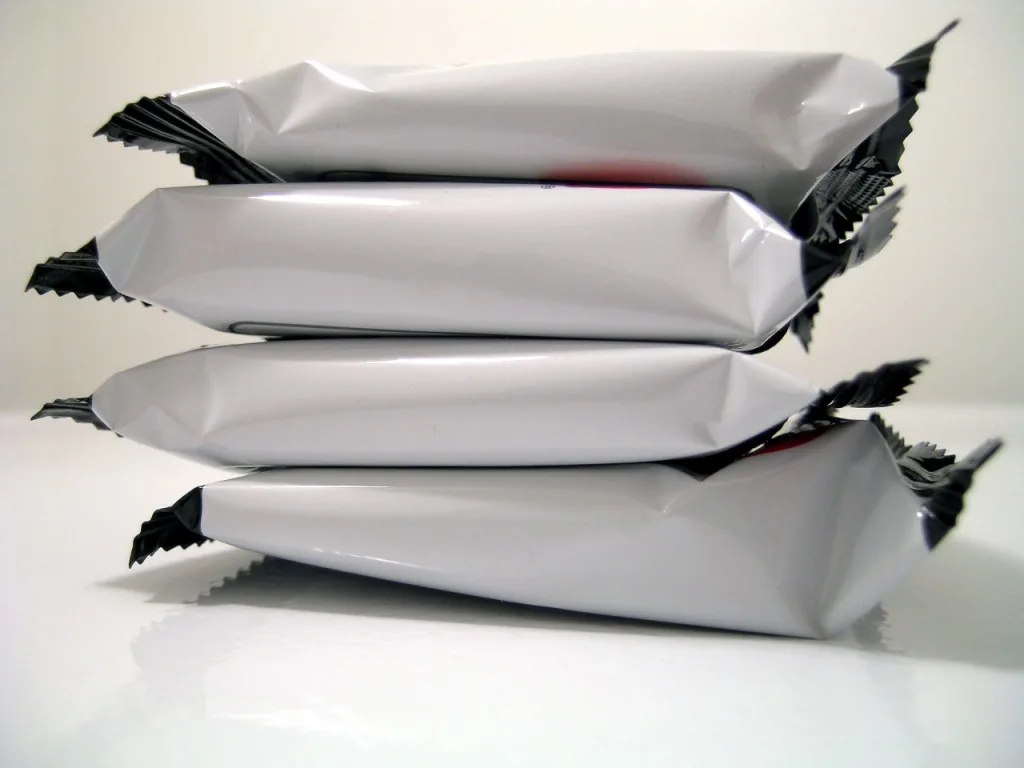
The other day I was really hungry and grabbed something I had never tried before. As I was scarfing down this food in my hungry state, I turned the package over to read the ingredients. It appeared okay...no high fructose corn syrup, whole grains, but....what about "hydrogenated oil." Hmmm....I hadn't seen that on a food label in a while and I wasn't sure what it was. I had read labels that said "contains no hydrogenated oils" but still, I wasn't exactly sure what I was eating or why some companies thought it was important enough to dedicate a space on their package to tell me that their product DID NOT contain it, so it was probably important that I didn't eat it.
I went to the internet to search for hydrogenated oils and came up with these little tidbits:
- Oils have been hydrogenated for decades to make them more shelf stable. (Wise Geek)
- Hydrogenated oil has a higher melting point and is often used in frying and pastries.
- The chemical structure of oil is changed when it is hydrogenated.
- Hydrogenated oil is made by forcing hydrogen gas into the oil at high pressure.
- In the 1990's, people began to realize that hydrogenated oils are not good for consumption.
- All fast foods probably contain hydrogenated oils.

From Natural News:
Hydrogenated oils are oils that are often healthy in their natural state, but are quickly turned into poisons through the manufacturing and processing they undergo. They take these naturally healthy oils such as palm, kernel, soybean, corn oil or coconut oil and they heat it anywhere from five hundred to one thousand degrees under several atmospheres of pressure.
They then inject a catalyst into the oil for several hours. The catalyst is typically a metal such a nickel, platinum or even aluminum. As this bubbles up into the oil the molecular structure changes and increases in density and rearranges it's molecules so that instead of a liquid at room temperature we now have either semi-solid or solid oil. This creates either partially hydrogenated or fully hydrogenated oils.
The molecules in this new product are now closer to cellulose or plastic than to oil. In fact hydrogenated oil is only one molecule away from being plastic. When you eat anything containing this material, just as the oil is now thicker and more viscous (dense), so too does your blood become thicker and more viscous right along with it. The heart now has to work so much harder to pump blood throughout the system. This is one of the major ways that consuming hydrogenated oils contributes to high blood pressure.
As you can imagine, this thicker blood with this gummy substance flowing with it can easily lodge in the arteries and build up the arterial plaque. It doesn't take anywhere near as much time as you may think for this to occur. Some studies have shown that negative health effects of eating processed foods occurs within only minutes of consuming such foods.
Umm.....say it with me now: "GROSS!" We are essentially eating these thick oils that are one molecule away from PLASTIC! I remember they used to say that about margarine, but (smart) margarine manufacturers have taken the hydrogenated oils out of their products. But they're still putting this gross, manmade compound into our food and clogging up our arteries!
So how do we avoid hydrogenated oils? Well, for starters, eat and consume foods that you make at home from their natural, raw state. Fresh fruits and vegetables, meats, and grains won't contain hydrogenated oils. Foods that are pre-packaged and processed are more likely to contain hydrogenated oils, so either be diligent in reading labels or just avoid these foods all together. Eating out, sadly, is not free of hydrogenated oils, either. As stated earlier, fast food is really likely to contain hydrogenated oils, expecially if you get a fried food. You can check with restaurants, but it is likely they won't be able to tell you if the food you are ordering contains hydrogenated oils. You can ask if the food is made from scratch or made elsewhere and avoid fried foods, but again, there is just no way to tell unless they proudly say they don't use hydrogenated oils in their foods.

We, as a nation, can tell companies that we don't want hydrogenated oils in our food. If you find out that a food you're buying contains hydrogenated oils, why not pick up a pen or write an email to the company? It's likely to be tossed, but if enough of us tell companies we won't eat gross artery clogging gunk, then they're likely to at least think about changing....or at least I would hope so. News like this makes me sad that so many of our underprivileged kids are eating this junk because it's cheap and more readily available. 🙁
How do you avoid junk like hydrogenated oils?

Stacey W.
Monday 25th of February 2013
Oh, no! How disgusting! I wish I was better at not having so many processed foods in our household. This is getting me more motivated!
Linette
Monday 25th of February 2013
We try not to do processed foods whenever possible! It's so crazy, you have to read the fine print on every label to know exactly what is in something!
Deborah
Friday 22nd of February 2013
Oh yeah, good old (NOT!) trans fats. And the loophole in nutritional labels allows a serving to have up to .5 grams and still be considered "zero", so the only way to know if it contains transfats is to look at the ingredients for hyrdrogenated fats.
We don't eat many processed foods either, but you have to be so careful. I know that a lot of people don't understand what transfats are, so thank you for posting this!!
Isra {TheFrugalette}
Thursday 21st of February 2013
This just makes me more glad that we've moved away from processed foods. I have very few pre-made foods in the house anymore, I just can't stand them. It takes more time, but I love feeding my kids wholesome, real foods.